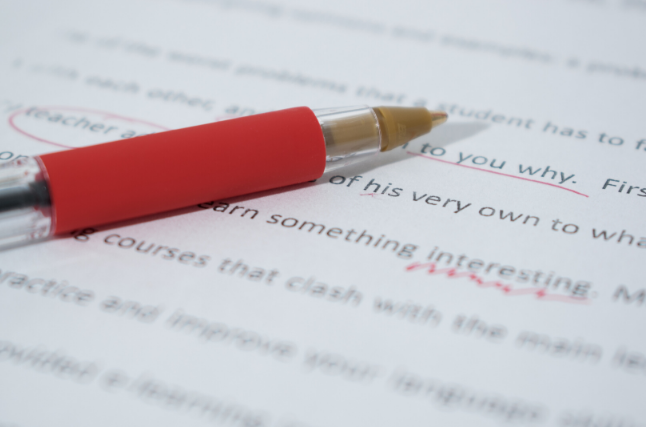
Congratulations, you’ve completed your manuscript! Now what? For me, the fun begins when it’s time to edit. It’s where you take your ideas and the foundation you’ve laid for your story and make it even better.
I’ve been fortunate in my writing career to meet a lot of great editors willing to help writers by sharing their expertise. I asked them for their top tips for polishing a manuscript for submission and here’s what they said.
1. Decouple Advice from Others
Tex Thompson, developmental editor at The Tex Files, enjoys editing anything from first ideas and outlines to finished second drafts.
“Sometimes you will receive a suggestion on your work – from a professional editor, critique partner, or friend – that seems wrong, or that you are reluctant to use. When this happens, say: ‘I hear what you're saying, and I'm open to making changes. Can you tell me more about the problem you want me to address?’
“Very often, the person suggesting the change has correctly identified an issue with your piece but their solution is not the best one. The more skilled you become at decoupling the (right) problem from the (wrong) solution, the better you will address the issue in a way that rings true to your voice and vision. A good editor, like a good doctor, should be able to clearly and patiently explain their observations, and work with you to find a 'treatment' that fits your needs!”
2. Isolate Your Writing
This tip comes from John Matthew Fox, Editor at Bookfox.
“Take one element of your writing – first sentences of paragraphs, lines of dialogue, metaphor/similes – and put all of them in a new file. In this new file, you'll be able to compare them against each other, and more clearly see which ones are splendid and which ones are wonky.
“Writers get page blindness because they've been staring at their manuscript too long, so your goal is to put your writing in a whole new light. A new file and new context help detach you from your work and allow you to become a good editor of yourself.”
For more tips, check out John’s article "9 Tips to Become a Better Self Editor.”
3. Watch Your Point of View
Margo Dill of Editor 911 edits all genres and stages of writing projects.
She says: “Making mistakes with point of view can be easy to do because as writers, we so badly want to make sure our readers understand everything that's going on in a scene. If we are writing an argument between a married couple but we want readers to understand husband and wife love each other, we make the mistake of writing what each character is thinking and in the same scene.
“For example, let's say you started with the wife's point of view, and she is mad at her husband for forgetting a date night. You write the scene with her observations and internal thoughts while the dialogue is between both of them. And then you include a sentence like: Harold thought she never looked more beautiful than when she was angry.
“That's head-hopping. That violates singular point of view. And you don't need it. How could you let readers know that Harold loves and adores his wife even though he forgot date night? He can say it. He can hug her and she can ask him: Why are you doing this? She can melt into him and know in her heart how much he loves her. But if she is the point of view character, she can not read his mind (unless that was established early in the book, of course).
“If you write description, internal thoughts, and character motivation that the point of view character cannot see with his/her own eyes, then you are violating point of view. The only point of view structure where you can ‘see’ into everyone's minds at the same time (so not chapter by chapter or scene by scene) is omniscient. If you use omniscient narration, make sure that's appropriate for your genre and you study how to do it right.”

4. Choose Your Words Carefully
Beth Crosby of Editor Beth shared these thoughtful tips about choosing the best words for your work.
Many manuscripts can be tightened
To reduce word count and be more concise, eliminate that, very and other frequently overused words.
There is/are/was and were are overused verb phrases
Consider There was a man standing on the corner picking his nose compared to A man on the corner was picking his nose. Presumably he was standing. Otherwise, his sitting on the concrete would be noteworthy. Picking is an action verb that moves the sentence along faster and with more interest than was.
Use action verbs
Action verbs can make the difference between a boring book or a fantastic read.
Would is used in future tense
Telling a story from the past rarely uses would.
Correct: She said she would go after class.
Incorrect: I remember she would always come home tired.
(Corrected: I remember she frequently came home tired.)
Avoid using weak verbs
Several of the manuscripts I edited most recently used the verb “proceed.” This word is unnecessary. She proceeded to walk past him adds no information. Instead, the additional verb snatches action from walk and pads the word count.
Always run a spell check and proofread
Consider reading your work out loud or having Audible or your word processing program read it aloud. Words sound different when read aloud.
Ensure names are consistently spelled and that your reader remembers characters not mentioned for several pages
For example, in a novel that spans Sally’s life from high school through her forties, this would help the reader: Bob knocked on Sally’s door. He hadn’t seen her since college.
Find more tips in Beth’s guide “Don’t Publish Your First Draft: 5 Reasons to Rewrite” available on her website.
5. Remember Your Punctuation
Rachelle Rea Cobb loves editing historical fiction and shared this gem about ellipses.
“Be careful with formatting ellipsis! An ellipsis is always a series of three dots. The format for books is space … space, i.e. How did you do that so … so quickly? This is the AP style and works best with spacing, especially in eBooks.”
6. Listen Carefully
This final tip comes from Judy Blume via the New York Book Editors YouTube Channel.
Blume reads all her books out loud and makes notes as she goes. There’s something about hearing what you’ve written that helps highlight even the smallest errors. Watch the video below to learn more about her process.
If you have a manuscript you’ve completed and you’re ready to polish it, try some of these techniques to get it in the best shape possible. A huge thank you to all the amazing editors who contributed a tip!

